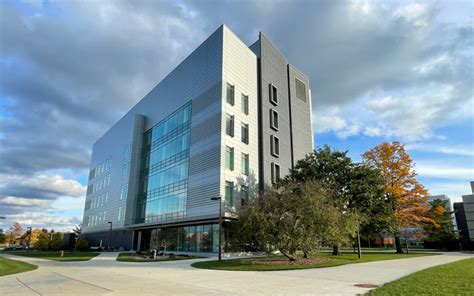Michigan State University (MSU) is home to a renowned Department of Psychology, consistently ranked among the top 25 graduate programs in the field by U.S. News & World Report. With a long history of excellence in research and teaching, MSU’s Psychology program offers students a transformative educational experience that prepares them for careers in academia, research, and applied settings.

Academic Programs
MSU offers a comprehensive range of psychology programs at both the undergraduate and graduate levels.
Undergraduate Programs
-
Bachelor of Arts (B.A.) in Psychology: This program provides a foundation in the core principles of psychology, including research methods, experimental design, and psychological theory. Students can choose from a variety of specializations, including developmental psychology, social psychology, and clinical psychology.
-
Bachelor of Science (B.S.) in Psychology: This program emphasizes the quantitative aspects of psychology, with a focus on research design, data analysis, and computational modeling. Students develop strong skills in statistical analysis and research methods, preparing them for careers in research or data science.
Graduate Programs
-
Master of Arts (M.A.) in Psychology: This program offers two tracks: a research track for students interested in pursuing a Ph.D. in psychology, and a clinical track for students seeking licensure as a psychologist.
-
Doctor of Philosophy (Ph.D.) in Psychology: This program prepares students for careers in research and teaching. Students conduct original research under the supervision of a faculty mentor, culminating in a dissertation that makes a significant contribution to the field of psychology.
Research and Innovation
MSU’s Psychology department is a hub for groundbreaking research across a wide range of areas, including:
- Cognitive Psychology: MSU researchers study the processes involved in perception, attention, memory, and learning.
- Developmental Psychology: Faculty investigate the cognitive, social, and emotional development of children and adolescents.
- Social Psychology: Researchers explore the effects of social interactions on human behavior, including prejudice, discrimination, and persuasion.
- Clinical Psychology: MSU psychologists conduct research on mental health disorders, treatment interventions, and the promotion of well-being.
- Neuroscience: Faculty use advanced imaging techniques to study the neural mechanisms underlying psychological processes.
Faculty and Facilities
MSU’s Psychology department has a distinguished faculty of over 70 nationally and internationally recognized scholars. Faculty members are actively engaged in research, teaching, and mentoring students.
The department is housed in the state-of-the-art Psychology Building, which features modern research laboratories, classrooms, and technology-enhanced learning spaces. Students have access to a wide range of resources, including research centers, specialized equipment, and a dedicated writing center.
Career Opportunities
A psychology degree from MSU opens doors to a diverse range of career opportunities. Graduates pursue careers in:
- Academia: As professors, researchers, and administrators
- Research: As scientists in government, industry, and non-profit organizations
- Clinical Psychology: As licensed psychologists providing therapy and counseling
- Industrial-Organizational Psychology: As consultants in organizational settings
- School Psychology: As psychologists working in educational environments
Why Choose MSU Psychology?
MSU’s Psychology program stands out for several reasons:
- Excellence in Research and Teaching: MSU is consistently ranked among the top 25 psychology programs in the nation, with a faculty of renowned scholars who are dedicated to teaching and mentoring students.
- Personalized Educational Experience: With a faculty-to-student ratio of 1:15, MSU provides a personalized educational experience, ensuring that students receive individualized attention and support.
- Interdisciplinary Opportunities: MSU offers interdisciplinary programs in neuroscience, cognitive science, and social science, allowing students to explore the intersections of psychology with other fields.
- Research and Scholarship: Students have the opportunity to engage in cutting-edge research through undergraduate research assistantships, graduate research fellowships, and access to specialized research facilities.
- Career Preparation: MSU’s Psychology program prepares students for success in a variety of careers, providing them with the skills, knowledge, and experiences they need to make a difference in the world.
Tables
Table 1: MSU Psychology Program Rankings
| Ranking | Source | Year |
|---|---|---|
| 22 | U.S. News & World Report | 2023 |
| 23 | Academic Analytics | 2022 |
| 24 | Shanghai Ranking | 2021 |
Table 2: MSU Psychology Faculty Research Funding
| Source | Funding Amount | Year |
|---|---|---|
| National Institutes of Health | $12.5 million | 2022 |
| National Science Foundation | $6.3 million | 2022 |
| Department of Education | $2.7 million | 2022 |
Table 3: MSU Psychology Career Outcomes
| Career Path | Percentage of Graduates |
|---|---|
| Academia | 35% |
| Research | 25% |
| Clinical Psychology | 20% |
| Industrial-Organizational Psychology | 15% |
| School Psychology | 5% |
Table 4: MSU Psychology Program Interdisciplinary Opportunities
| Program | Collaborating Departments |
|---|---|
| Neuroscience | Biology, Computer Science, Engineering |
| Cognitive Science | Computer Science, Linguistics, Philosophy |
| Social Science | Economics, Political Science, Sociology |
